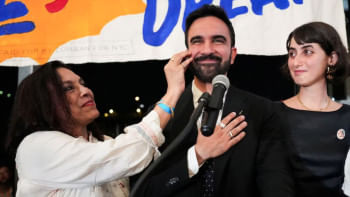The art business amidst COVID-19

The business of the creative arts, as like any other profession, has seen changes during the past year. Freelancers, creative marketplaces, and galleries have experienced positive and negative impacts while in some cases, the situation has inspired creative endeavours.
Gallery Shilpangan, currently directed by Rumi Noman and one of the pioneering private galleries in Dhaka, has been operating since 1992. The gallery displays its own artwork to the public for purchase and curates exhibitions.

However, with the turn of events and a decrease in regular exhibitions, the gallery's main source of income, selling paintings, has taken a hit. Despite adapting to the situation and arranging online exhibitions, the number of sales were still quite low.
Noman says, "These exhibitions are not just about the art, it is also the interaction and the gathering where art students can also come and learn."
With hopeful intentions, the gallery will exhibit a charcoal exhibition towards the end of June, taking place both in the gallery and online.

Similarly, Saria Saguaro, owner of The Flourist, curated an art show and sold a lot of paintings in the dine-in space launched in February 2021. Despite her passion and desire to curate more, the space had to be closed down due to the lockdown.
While some businesses like that of Sultan Ishtiaque's were secured due its pre-existing online market, some freelancers like Tahseen Nur aka Mr Pencilist, encountered a surprising increase of workflow.
Nur says, "The amount of mural work I get now has doubled compared to what I got before."
Both Ishtiaque and Nur had feared that their businesses would fall. Despite being doubtful, Nur saw an increase in the demand for murals and Ishtiaque only faced issues while delivering his paintings.
Nur makes a guess that perhaps business owners had become more conscious about interior designing for which he had a spike in business, while Ishtiaque's business was secured due to 90 percent of it being dependent on his online platform and the rest on gallery exhibitions.

TukiTaki.xyz, originally a Facebook marketplace, shifted to an only e-commerce site realising the threat COVID-19 posed and anticipating the need to shop from home. Keeping customer satisfaction and convenience in mind, founder Leonika Hannan was quick to provide creative entrepreneurs with a platform to showcase and sell their products.
Their much-awaited event Arts & Crafts Fest held annually since Winter 2016 was one of the many events which had to be postponed.
Hannan says, "This event gives sellers and customers an opportunity to get to know each other and interact offline. This is our favourite event of the year."
Moreover, sales had declined for creative entrepreneurs selling paintings while entrepreneurs focusing on creating home interior products saw a 70 percent increase in revenue since the start of the pandemic.
On the bright side, the pandemic has also inspired many businesses supporting the creative arts. For instance, the website Esscre, being developed by Moontasir Shahriar Bijoy and his team, was inspired by the rise of creativity and people being able to hone their creative skills during the lockdowns.

The website is designed to be an inclusive artistic space for all kinds of creative artists where these individuals will be able to showcase their work while having their own personalised portfolios.
Just as COVID-19 was one of the motivators of Esscre, it also presented some obstacles in terms of finding investors and a physical space. Additionally, due to safety regulations, the team itself is yet to properly come together.
Bijoy says, "Some people in my team, their families were affected by COVID-19. These tragic losses also stretched the development process."
Despite the specialised digital platform, Bijoy believes that a physical space is necessary to unite, groom and motivate creativity among artists.
He says, "Experiencing an artistic setting is motivating, and more productive. We want our place, which will be called 'Dreamcatcher,' to be a place where people can nurture their talents and interact with the artists directly. This is more engaging."
Seeing paintings face to face as opposed to seeing a photo of it online distances people from the paintings' aesthetic, and sentimental values. With both positive and negative outcomes from different artistic lines of work, this community is doing its best to remain on its individual and collective artistic journeys.
Hannan would encourage customers to buy from online businesses and marketplaces to support the growth of creative platforms in Bangladesh. As such, despite the distance and intimacy, these businesses would come out stronger, with more creativity and artistic opportunities.
Photo: Galleri Kaya

 For all latest news, follow The Daily Star's Google News channel.
For all latest news, follow The Daily Star's Google News channel. 








Comments